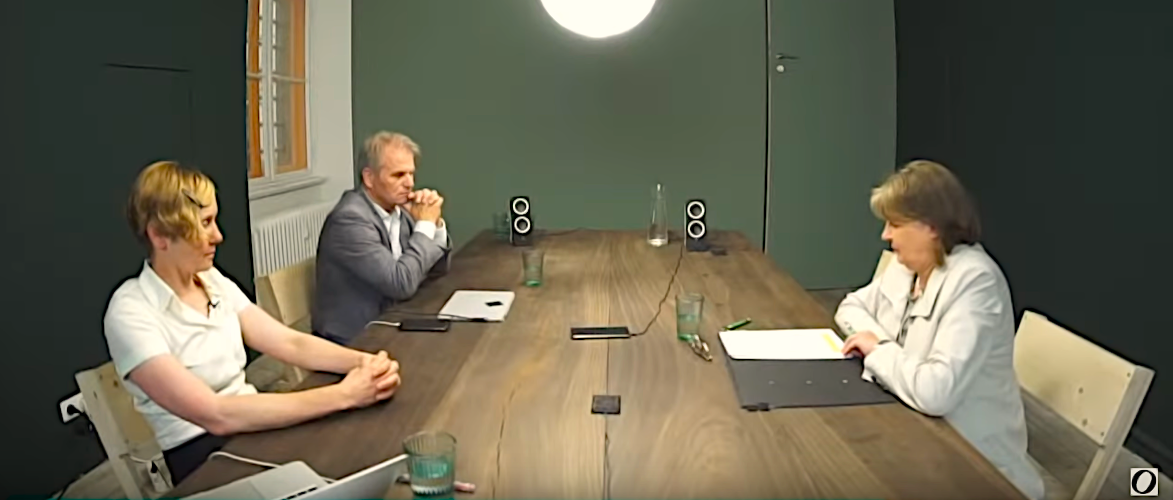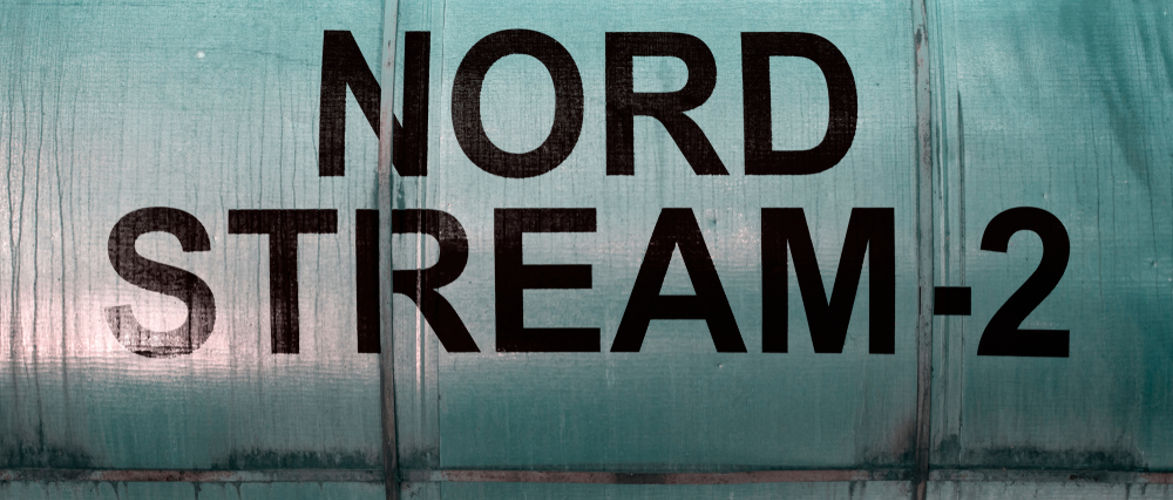Insult to royalty or necessary trial?
By Jochen Mitschka.
In parts 1 and 2 of this series we reported on the first hearing of the Corona Committee, entitled “Learning from the Swine Flu Investigation Committee” (1). Part 3 describes the first part of the second hearing on the topic “The situation of people in nursing homes”, which is now continued in the fourth part with the report of a supervisor and a relative.
Report of a supervisor
Mr. Kusch (2) supervises 16 people and reported by telephone about his activities, especially during the closing of the nursing homes.
He reported on cases in which assisted persons were sedated so that they moved less and not leave the rooms. This was particularly frequent during the confinement of the residents in their rooms. Sedation was unfortunately used far too often, and the more critical the care situation was, the more often sedation was used as a “therapy”.
Mr. Kusch reported about significant differences in treatment. He said that some facilities had already begun to introduce protective measures for the residents before the measures were imposed. Once the contact blocks had been imposed, he would have had no way of checking the treatment of those he cared for. He simply had to believe what the nursing homes told him. The residents, according to Kusch, would have been completely at the mercy of the homes, with no chance that anything could have been done by the supervisor.
In homes where grievances had repeatedly arisen even before they were closed, there would have been particularly great difficulties in adequately representing those in care. When he had the opportunity to make visits again as a supervisor, he would have seen things that would have been ” extreme”. It started with the external circumstances (long hair, poor care in general). Many people who would have been admitted from hospitals, after a stroke or heart attack, would have been “not allowed in”. Patients or residents were treated to a large extent only with medication, not with the usual rehabilitation measures.
“I talked to a guy yesterday who hasn’t been in the sun this year.” He refused to believe it. The person being cared for would have had severe back problems, but could still walk on a walker in February, but that was no longer possible after the lockdown. He could now only drive in a wheelchair. In such cases, the carers often state that the person being cared for does not want to. But such things would have been the a harmless observations.
He had seen people who “wanted to kill themselves”. Something he heard a lot of. In the course of a month before the closure, there were about one or two serious cases where one could speak of suicide attempts, mostly due to loneliness. But this would now have increased significantly and would be far above average. For some, the attempt would succeed, others would simply give up.
Before that, people would simply have been “tired of life”. In the past, one could have intervened quite often and improved the situation. Now, in addition, “people don’t want to do anything anymore, they give up completely”. They would explain that if they were not treated, why should they go on living? “I lie here, have no possibility to get out, must not receive visitors”. They just wanted to stop breathing. “People just give up and die.” People would die of loneliness.
Then he reported about an experienced case, which would also be credible because he would know the relatives. There was a relatively young woman with a severe heart condition. The parents would have wanted to talk to her, at least on the phone. They were then told that this was not possible because the resident was asleep. The family then threatened to inform the public about the case if they were not allowed to see the dying person. Then the parents were allowed in and found that their daughter was dying. The partner was not allowed to see the dying person. They couldn’t do that because of the protection measures. Only after long begging and pleading would it have been possible for him to say goodbye to the dying woman.
The committee asks whether the already deplorable situation before Corona would have been massively worsened by the Corona measures. This was confirmed by the supervisor. “I’ve never seen anyone say ‘great that this has happened now’.”
Mr. Kusch reported that the residents were influenced by the home management and nursing staff. They would have said: “Do you really want this virus to come in?” Which of course the elderly people deny. If he had talked to the elderly people, they would have said: “You know what, I’m 88, I’m 90 years old, I’m 93… Anyway, do you really think we’re afraid of the flu? No, we’re afraid we’re gonna die here alone.” These people wouldn’t even be interviewed. [In other words, they’re incapacitated by the Corona measures.]
He further reported that the homes were primarily proud that the virus had not entered the home, they would not feel responsible for the depression caused by the lockdown.
Mr. Kusch went on to explain that the so-called “loosenings” were not really loosenings. The tendency would have been to have barred windows and people separated by several meters, talking on baby monitors under “surveillance”. Mr. Kusch was of the opinion that it would be a more pleasant atmosphere to visit a prisoner in prison than to visit a resident of a home. It would be almost impossible to have a private conversation with the residents.
While before Corona every coercive measure had to be confirmed by a court, today there is practically arbitrariness in many homes. If people with dementia do not want to follow the rule of staying in their room for a fortnight because they might have caught something, the door is often simply locked. The public health department would also have ordered a quarantine, but did not say how this should be implemented in homes for people with dementia, it did not feel responsible for it. In doing so, the homes would also violate the usual requirements that continuous speech and visual contact must be possible when a person is locked up.
There would have been cases in which a complete home would have been quarantined because a resident with dementia had briefly left the home. … Shortly afterwards the livestream was interrupted.
Next, Mr Kusch reported that in many cases the corona measures also led to the sedation of residents. For politicians all cases were dismissed as individual cases. The problem would be the preservation of evidence and the conviction of perpetrators. Witnesses would be missing, then it would be testimony against testimony, and it would be extremely difficult to hold those responsible for actions accountable. Mr. Kusch was of the opinion that the homes would often present themselves as victims.
(The caregiver’s job would end with the death of the person being cared for, so he would have no way of taking any initiative afterwards).
When asked by the committee what had to happen, Mr Kusch replied that it would be easy. Simply to allow visits from relatives again without a separating glass, distance and guarding. At the entrance one could disinfect one’s hands, perhaps put them on lists, and then have unhindered access to the relative [or caregivers].
Report of a relative
Subsequently, Dr. Regina Kühne from Hamburg was consulted. She has a demented mother in a nursing home in Lower Saxony. The mother has been in the home for over three and a half years, but she changed and this would now be the 3rd home. In this home the mother is about one year.
From the committee was then asked to report how the situation before and with Corona was for a relative.
Before Corona it would have been a really comfortable home. Visits were possible at any time. Relatives could stay as long as they wanted. Relatives could go into the common rooms, take part in the common meals. Relatives could bring cake or other things. Joint walks were possible without problems, as well as visits to the doctor or excursions.
Then came the 16th of March, a Monday when the daughter spoke to the head of the nursing service on the phone, and the head of nursing mentioned to her that they would close the home the next day. Thereupon she went back to her mother’s house to leave some things there. The head of the home then explained that she had been put under pressure because she was allegedly negligent because other homes had been closed earlier.
On March 19, on the occasion of her mother’s 90th birthday, Dr. Kühne had planned a small celebration. It would have been cancelled, but she would have been told that at least she could visit her mother exceptionally. The mother lives on the ground floor and access was possible through the balcony door without actually “entering” the home. But in the week before her birthday this was also cancelled. She was offered to lead the mother onto a balcony so that she could see her from the garden.
Dr. Kühne then reported how she had tried to persuade the home management to let her mother out of the door so that she could take her for a walk in the garden of the complex, as usual. This was also refused. That would be too dangerous.
Dr. Kühne’s mother was in a bad way and it was not certain that she would even live to see her 90th birthday. On the day of her birthday, the mother was taken to the balcony and was happy to see her daughter. But the caregiver standing next to her forbade direct contact. With five meters distance in the snow a short conversation was held.
Afterwards no more contact was possible. After about two weeks, an employee had called Dr. Kühne and explained that another relative had found out the trick of talking to a resident through a hedge, and she would take the mother there. However, contact through the hedge was practically impossible. Eventually, a way was found with a gate as a separation to visit the mother. She then described the difficulties of explaining the separation to a person with dementia, and how the conversations always went round and round.
Since about the beginning of May, a visiting room with a transparent plastic wall was installed. The reaction of the residents and visitors would have been different. Now the mother is allowed to be accompanied by her daughter with the rollator again. Distance rules still apply in the home.
One committee member concluded from the explanations that there was a kind of legal vacuum with regard to contacts, because the regulations of the state government were probably interpreted differently. The Prime Minister seems to have said that he wants to make contact possible again, but the health authorities seem to insist on the old hygiene and distance measures.
Dr. Kühne then reported on her struggle with bureaucracy, for example how emails were sent out in reply for hours and hours, which would not have answered the questions at all. It would always be explained, virtually with standard texts, that the measures were only there to interrupt the chains of infection. After further investigation, reference was made to a new regulation. But as a result, one could only have noticed that suddenly the Prime Minister’s wish, or rather the contact possibilities, had been completely deleted again.
A relief in recent times was that Dr. Kühne was allowed to talk to her mother on the balcony above the tilted balcony window. Since two weeks the situation was finally eased to such an extent that the mother’s room could be entered again. However, only with a mouth guard, and without direct contact, without touching and with a distance of 1.50 meters.
It was reported that the staff was so frightened that some did not go shopping themselves, and even kept distance from their children for fear of bringing the virus into the home.
Dr. Kühne is a mathematician and when asked by the committee, she said that she found Prof. Homburg’s statements very conclusive, but he would not be the only one to get the numbers right.
The committee thanked her for her explanations and explained that there had been many witnesses who reported but did not want to appear in public for fear of economic and social consequences.
Coming soon
In the next video summary we will report on the third meeting of the Foundation Corona Committee. It will deal with the conditions in Bergamo, which are repeatedly cited by politicians and the media in Germany as a reason for the necessity of a shutdown in Germany.
Sources:
1. https://corona-ausschuss.de/sitzung2/
2. https://www.deutschlandfunk.de/unfrei-im-heim-menschenrechtsverletzungen-in-der-altenpflege.724.de.html
+++
Thanks to the author for the right to publish.
+++
Image source: OvalMedia
+++
KenFM strives for a broad spectrum of opinions. Opinion articles and guest contributions do not have to reflect the views of the editorial staff.
+++
KenFM now also available as a free app for Android and iOS devices! Via our homepage you can visit the stores of Apple and Google. Here is the link: https://kenfm.de/kenfm-app/
+++
Support us with a subscription: https://www.patreon.com/KenFMde
+++
You like our program? Information about further support possibilities here: https://kenfm.de/support/kenfm-unterstuetzen/
+++
Now you can also support us with Bitcoins.

BitCoin address: 18FpEnH1Dh83GXXGpRNqSoW5TL1z1PZgZK










Kommentare (0)